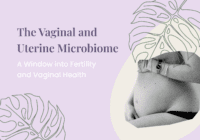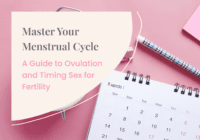If you’re looking to get pregnant whilst following a fitness plan, you may have questions about how your fitness choices could impact your fertility.
If this sounds like you, you’re in the right place! Based on some of the most frequently asked questions about the intersections of health/fitness practices and fertility, we did a mini deep-dive into a few key practices to bring you the latest findings.
Our goal in this post is to give you some key data points that will start to answer your questions about how common health/fitness practices could affect your fertility, as a male or female.
Read on for the latest fertility findings on intense exercise, intermittent fasting, protein powder, creatine, and anabolic steroids.
Preamble – Weight and fertility
Before we go any further, it’s important to address what weight, health, and fitness have to do with fertility in the first place? The links may be stronger than you think.
Firstly, being overweight or obese can significantly affect fertility and the chance of natural conception. For women, being overweight or obese could dysregulate the menstrual cycle and cause other health issues which make it more challenging to get pregnant. Research has shown that for women in these categories, losing weight has increased their spontaneous conception rate and decreased their need for further fertility treatment. For men, obesity can reduce the overall quality of sperm.
On the other side of the coin, being underweight (having a BMI of 18.5 and under) can also make conception harder. This is because, when you’re underweight, your body may stop producing estrogen, which can also dysregulate the female menstrual cycle and stop the body from ovulating or menstruating.
Intense exercise

While we rarely discourage healthy and moderate exercise, we want to raise a yellow flag here. If you’re setting big fitness goals based on intensive exercise, you may want to consider the potential effects on your fertility if you’re hoping to conceive at the same time. Let’s consider the evidence by sex:
In women, we’re missing research to fully understand how intense exercise affects fertility. Observational studies have shown that intense exercise disturbs ovulation, but short-term studies that have been done have not always found the same. With mixed results, we’re not sure how long-term training and chronic energy deficit impact women’s fertility.
For men, amongst recreational athletes, exercise appears to have a positive or no effect on fertility. But amongst professional athletes, intense exercise could negatively impact sperm concentration, % of motile spermatozoa, and % of morphologically normal spermatozoa. This said, researchers can’t be sure how these factors impact the ability to conceive.
Intermittent fasting
As you build your fitness plan, it may include a nutrition regimen, like intermittent fasting. Intermittent fasting, or time-restricted eating, is a practice wherein you consume all your food and caloric drinks during a set time window in a day, while fasting outside of that window. It’s becoming a popular method for people to control their weight, and even has some evidence of reducing the risk of metabolic diseases like diabetes.
But does intermittent fasting affect fertility? Since there is little research on this correlation, the jury may still be out. From what research has been done, there’s a chance that intermittent fasting could lower androgen markers in both females and males. If so, the practice could help treat hyperandrogenism in females with polycystic ovarian syndrome (PCOS), improving menstruation and fertility. But in males, reducing androgens could reduce libido and hurt metabolic health. Still, more research is needed to confirm these early findings.
Protein powder

The past decade has seen the rise of protein powder. Not just for bodybuilders, but for anyone looking to supplement protein in their diet. If this is you and you’re planning on or trying to conceive. You might be wondering, does protein powder affect fertility?
One important consideration is the hidden ingredients in your protein powder. Since protein powders are not listed as medical drugs but as dietary supplements. The testing and standards are far less rigorous. So if you’re buying supposedly “pro-androgenic” supplements (not necessarily your common whey or soy protein) the product you buy may be contaminated with other problematic ingredients. A recent study found that 23 of 24 dietary supplements sold in fitness equipment and online stores contained anabolic steroids.
The impacts on fertility? We haven’t seen enough research done on women to make a statement. As for men, a 2018 study amongst 20 subfertile men found that avoiding protein supplements was linked to improved sperm concentration. Although there was no significant impact on total sperm count. The researchers propose avoiding protein supplements for men with low sperm count in fertility treatment. We still need more research to understand how protein supplements might impact the reproductive health of young men.
Creatine
You may have heard some fitness gurus advocate for supplementing creatine to gain muscle and support your fitness goals. Creatine is an amino acid derivative made from arginine, glycine and methionine. While many people have wondered if supplementing creatine is safe, the International Society of Sports Nutrition claims that using it as a nutritional supplement within established guidelines is safe, effective, and ethical. But how does creatine affect fertility?
In women, there are a few points to be made. The creatine kinase system utilizes creatine as its substrate, and there is evidence of its operation in certain layers of the uterus. It is likely plays a role in reproduction. Positive or negative?
Some studies have associated creatine metabolism disturbances with poorer fertility and pregnancy outcomes. Researchers have looked into whether taking creatine during pregnancy could help protect against injury, especially in the baby’s brain. But it’s not clear if creatine is an essential element for successful reproduction. More research around how the uterus metabolizes creatine could help us discover ways to combat poor embryo implantation. Also, the inability to conceive, while also enhancing the uterus’ contractile performance while giving birth.
Creatine is gaining popularity amongst men for its potential fertility boosting power because of its role in sperm energy metabolism. Since spermatozoa are cells that need energy, they can struggle with deficient creatine metabolism. Low levels of creatine are often linked to poor sperm count and motility. Pilot trials have observed that taking a creatine supplement seems to improve sperm quality. This preliminary evidence suggests that creatine could actually help reduce subfertility in men.
Anabolic steroids

Albeit a much more intense fitness practice. Still common enough (3 million users reported in the US) it’s important to mention anabolic-androgenic steroids.
Some people use a healthy diet, exercise, and steroids to build muscle strength. The problem is that anabolic steroids are by nature androgenic and have many side effects. Some of these side effects go from mild and reversible, to potentially fatal and permanent. Abusing anabolic-androgenic steroids (AAS) often links them to short- or long-term male fertility impairment.
Many men who use these steroids do not realize the long-term impact they could have on their fertility. If you are using anabolic steroids, we recommend that you stop immediately. Not just for your overall health, but also for your fertility.
Final thoughts
We’ve given you a brief overview of a few common fitness interventions. It covers how they might impact your fertility, based on the currently available scientific evidence. As you may have noticed, many of these topics are not yet studied enough to have conclusive evidence. This meansit can be hard to know what to listen to.
If you’re working towards fitness and health goals, what we can recommend is to do your own research from multiple credible sources. It’s always a good idea to talk to your doctor before you make any changes to your lifestyle, especially if you’re planning to conceive.
Discover more related blogs from Dr. Tanya Williams Fertility Centre:
7 Health Tips to Support Fertility
4 Holistic Methods to Reduce Infertility Stress
Why Self-Love is Critical During Infertility & How To Harness It






